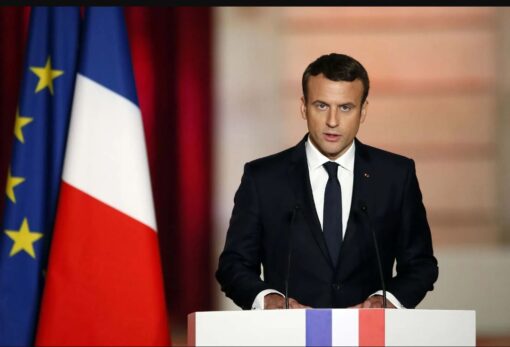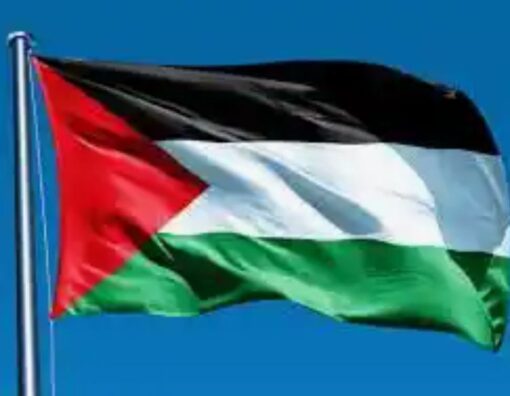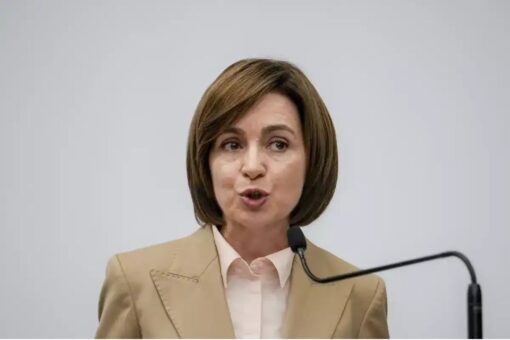France has formally recognised Palestine as an independent state in a move that is being hailed as historic, coming just days before world leaders gather in New York for the United Nations General Assembly.
The decision marks a dramatic shift in French foreign policy and places Paris among a growing number of Western powers acknowledging Palestinian statehood despite strong objections from Israel and its allies. For many observers, the announcement underlines a significant moment in the global debate on the Israel-Palestine conflict.
French President Emmanuel Macron delivered the announcement in a nationally televised address from the Élysée Palace.
“France recognises Palestine as a state because the right of the Palestinian people to self-determination cannot be delayed any longer,” Macron declared. “This recognition is a commitment to peace, to justice, and to the two-state solution, which remains the only viable path to ending decades of conflict.”
The recognition comes as Palestinians prepare to press their case at the UN General Assembly, where leaders are expected to debate the future of the two-state solution.

Macron emphasized that France’s move was intended to inject momentum into peace efforts. “Our decision is not directed against Israel but against the stalemate. Only by recognising both peoples’ right to exist in peace and security can we hope to build a future where coexistence is possible,” he added.
The French parliament had debated the issue for months, with lawmakers split over timing and the potential fallout with Israel. The final decision to recognise Palestine, however, was backed by a majority coalition after a series of heated sessions.
Foreign Minister Stéphane Séjourné described the move as “the fulfillment of France’s long-standing commitment to international law and human dignity.”
Israel reacted angrily to the announcement. Prime Minister Benjamin Netanyahu condemned the decision as “a grave mistake that rewards terrorism and undermines peace.”
In a strongly worded statement, Netanyahu said: “By recognising Palestine unilaterally, France has legitimised extremist forces and weakened the prospects for genuine negotiation.” Israel also recalled its ambassador to Paris for consultations, with senior officials warning that diplomatic and economic ties could be strained.
Palestinian leaders, meanwhile, celebrated France’s recognition as a diplomatic breakthrough. Palestinian Authority President Mahmoud Abbas issued a statement thanking Paris for what he called “a courageous decision that will be remembered by generations.”
He said: “France has stood on the right side of history. This recognition affirms the justice of our cause and strengthens our determination to continue on the path of peaceful statehood.”
Crowds gathered in Ramallah to watch Macron’s speech, many waving French flags alongside Palestinian ones. “This is the day we have been waiting for,” said Amal Jaber, a young teacher. “When France recognises Palestine, the world pays attention. This gives us hope that other countries will follow.”
The move by France follows similar decisions earlier this year by the United Kingdom, Ireland, Spain, and several Nordic nations.
Analysts say the domino effect reflects mounting frustration in Europe with the lack of progress in Israeli-Palestinian negotiations and concern over continued violence in Gaza and the West Bank.
Dr. Henri Dubois, a Middle East expert at Sciences Po in Paris, explained: “France’s recognition is not an isolated act. It is part of a growing European consensus that the two-state solution cannot remain a slogan. Recognition is becoming a diplomatic instrument to pressure both sides back to the table.”
The United States expressed unease over the French announcement but stopped short of outright condemnation. State Department spokesman Matthew Miller said Washington continues to support a two-state solution but prefers direct negotiations over unilateral recognition. “We understand France’s decision, but our position remains that only an agreement reached by both parties can deliver lasting peace,” Miller told reporters.
At the United Nations, Secretary-General António Guterres welcomed the development, calling it “a significant step towards advancing peace and justice in the Middle East.”
He noted that France’s recognition would likely shape discussions at the upcoming General Assembly session. “This decision sends a strong message that the international community cannot ignore the aspirations of the Palestinian people,” Guterres said.
Reactions in the Arab world were overwhelmingly positive. Jordan’s King Abdullah II praised France’s move as “a milestone in the global recognition of Palestine’s legitimate rights.”
Egyptian President Abdel Fattah el-Sisi also welcomed the announcement, saying it demonstrated “Europe’s readiness to play a constructive role in resolving one of the world’s longest-running conflicts.”
Not all voices were supportive. Critics in Paris argue that the recognition could complicate France’s role as a mediator. Right-wing opposition leader Marine Le Pen accused Macron of “abandoning France’s historic impartiality in the Middle East.” She told parliament: “This reckless move weakens our credibility with Israel and risks plunging France into the middle of an intractable conflict.”
Still, public opinion in France appears to favor the recognition. Recent polls showed that nearly 70 percent of French citizens support Palestinian statehood, reflecting growing sympathy for Palestinians amid ongoing humanitarian crises in Gaza.
Human rights groups have also praised Macron’s decision. Amnesty International said in a statement: “By recognising Palestine, France has sent a powerful message that the world cannot look away from occupation, settlements, and decades of dispossession.”
Economically, analysts say France’s recognition of Palestine is unlikely to trigger immediate consequences, though Israel could consider trade restrictions or limit diplomatic cooperation.
French businesses, particularly in the tech and defense sectors, may face pressure, but experts note that France is betting on long-term diplomatic gains over short-term costs.
For Palestinians, the recognition represents not just a symbolic victory but a potential catalyst for broader international acceptance. Already, Palestinian diplomats are lobbying Germany and Italy, two major EU states, to follow suit.

“We believe France’s leadership will inspire others,” said Riyad Mansour, Palestine’s envoy to the United Nations. “This is the beginning of a new chapter.”
The timing of the announcement, just before the UN General Assembly, ensures that Palestine will dominate the global diplomatic agenda in the coming days.
Observers say France is positioning itself as a leader in reinvigorating the Middle East peace process, even if the risks are high. As Dr. Dubois put it: “France has chosen principle over caution. Whether this accelerates peace or deepens division remains to be seen.”
As the dust settles, one fact is clear: the decision by France to recognise Palestine has reshaped the diplomatic landscape and reignited a debate that had grown stagnant.
For supporters, it is an overdue correction of historical injustice; for opponents, a dangerous gamble. But for Palestinians, it is a long-awaited validation of their right to statehood.
President Macron closed his address with a solemn appeal: “We extend our hand to both Israelis and Palestinians. Our recognition of Palestine is not an end, but a beginning — a beginning of renewed efforts to achieve peace, security, and dignity for all peoples of the region.”
The France recognises Palestine move may not immediately change realities on the ground, but it underscores a shifting tide in international politics — one where recognition of Palestinian statehood is no longer a question of if, but when.


